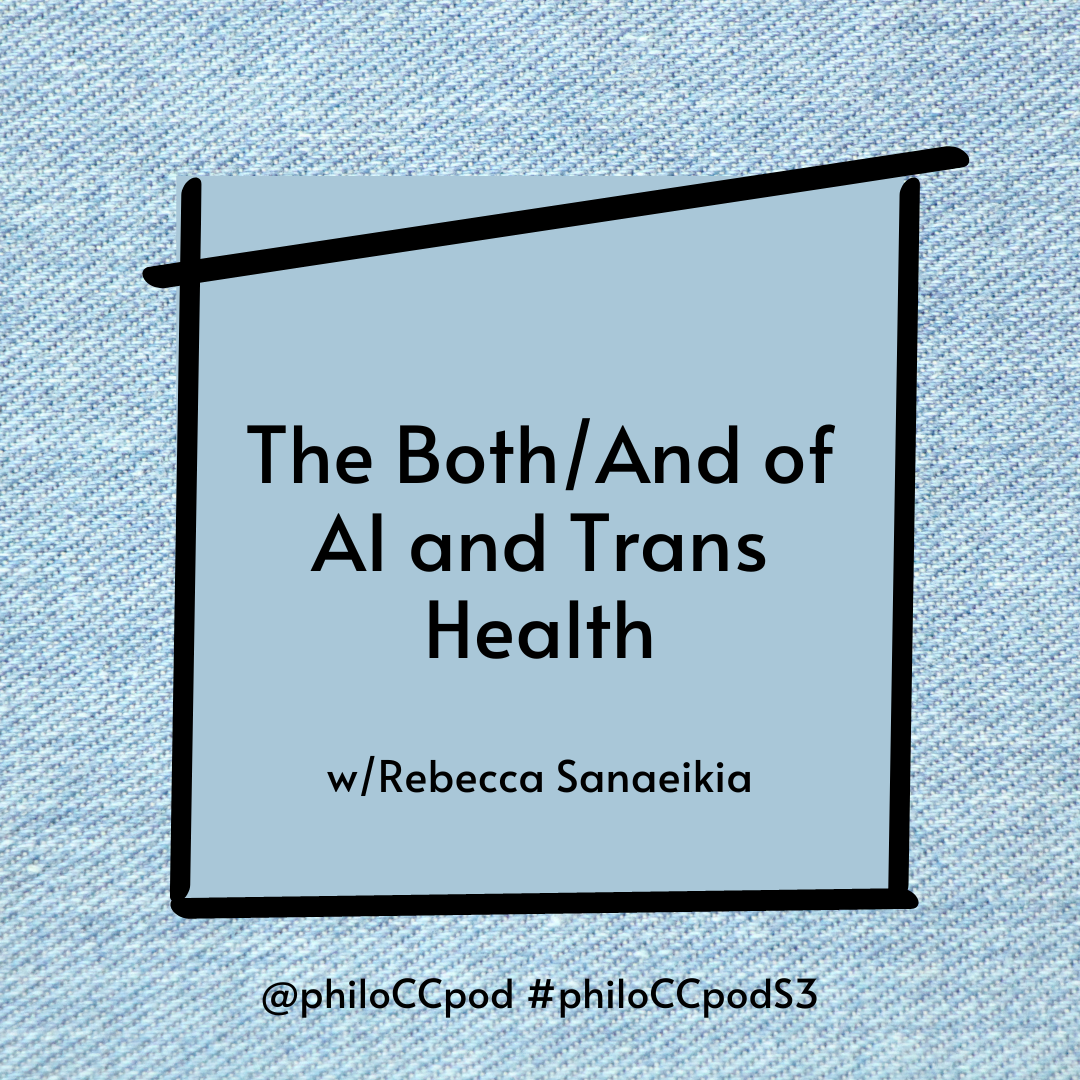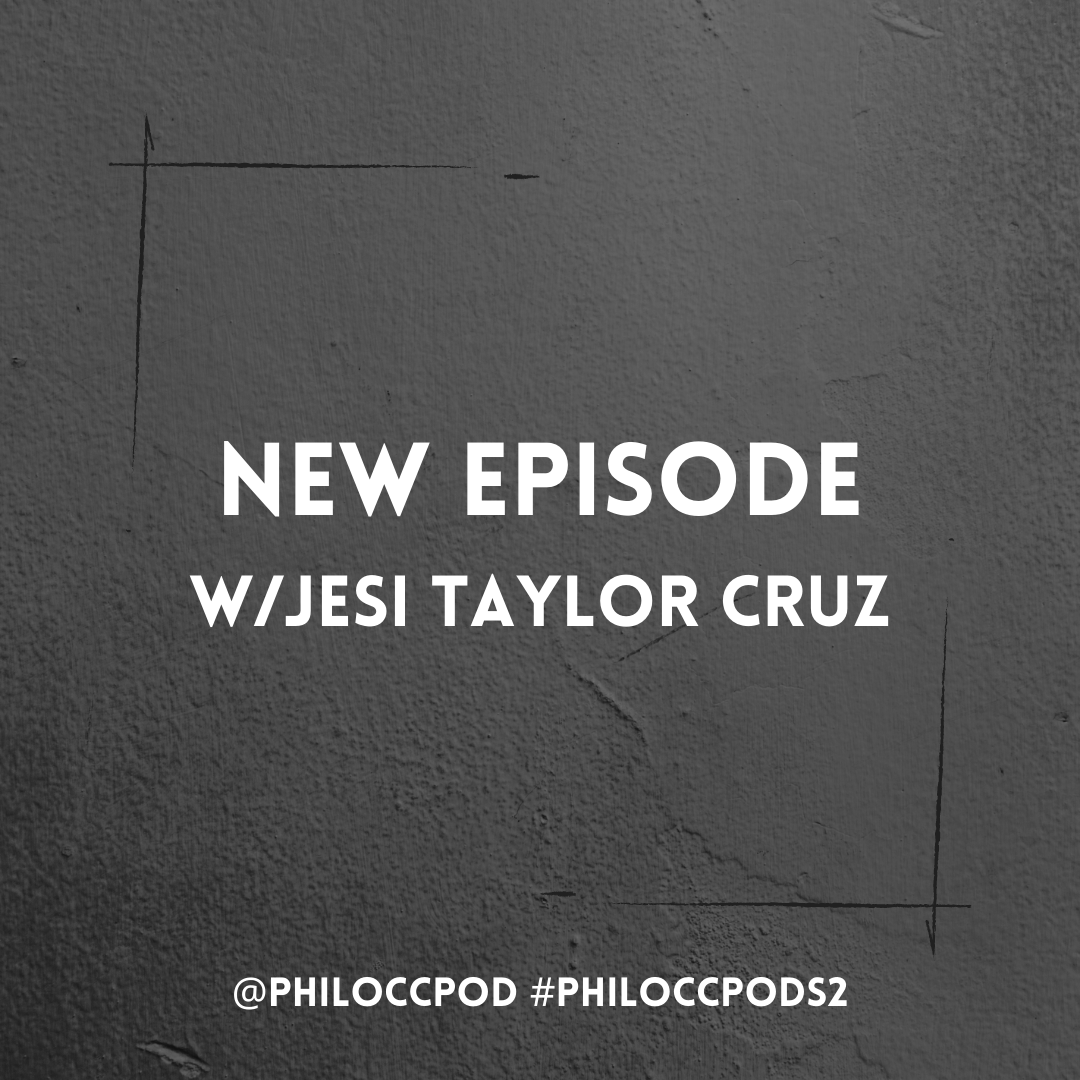
Philosophy Casting Call Podcast
Have you ever heard of Plato, Aristotle, Socrates? Well, this is not about them! Philosophy Casting Call is where Élaina Gauthier-Mamaril, your friendly neighbourhood philosopher, interviews professors, grad students, and non-academics to find out what philosophy looks like now and try to shine a spotlight on thinkers, topics, and themes that are underrepresented in academic philosophy. This includes women, LGBTQIA, disabled, and BIPOC people who are out there, getting their philosophy on, and who deserved to be cast as philosophers for all to see.

Shitposting and Algorithm Hygiene w/Jess Rauchberg
The end of season 3 has arrived! To go out with fanfare, Élaina interviews digital communications scholar Jess Rauchberg about the rhetoric act of sh*tposting on various social media platforms and how various hygiene policies change the ways in which a wide variety of people (from Nazis to disability activists) engage with culture. This is the perfect episode to listen to if you are curious about the philosophy of social media or if you want to know how in the world Lea Michele, the Succession fandom, and Olivia Rodrigo’s TikTok marketing campaign are linked to digital anti-ableism.

A Critique of Distributive Global Justice w/Agomoni Ganguli-Mitra
What does interdisciplinarity mean when your discipline is interdisciplinary? In this episode, bioethicist and global health ethicist Agomoni Ganguli-Mitra talks about using philosophical theories alongside scientific epistemologies and feminist approaches to shape our understanding of ‘global health ethics’. Specifically, she gets into her critique of the popular model of distributive justice.

The Both/And of AI and Trans Health w/Rebecca Sanaeikia
In this episode, Élaina talks about the ethical challenges of using AI tools in healthcare provision for transgender people with philosopher and bioethicist Rebecca Sanaeikia. They discuss the different versions of “top down” versus “bottom up” ethical strategies and the tension between needing more data on how trans people access healthcare and wanting to keep trans people safe.

Being Near Birth w/Andrea Ford
In this episode, Élaina interviews medical and cultural anthropologist and practising birth doula, Andrea Ford. Andrea discusses her trajectory as an interdisciplinary scholar and the power of studying liminal spaces to better understand what different cultures value.
CW: This episode contains discussion of fertility, pregnancy, and childbirth.

Black Radical Liberalism w/Kristin Waters
In this episode, Élaina interview Kristin Waters, the author of Maria W. Stewart and the Roots of Black Political Thought about combatting epistemicide and choosing to write on philosophy of race as a white woman in the US.

Non-Ideal Theories of (Trans)genders w/Matthew Cull
In this episode, Élaina interviews fellow philosopher Matthew Cull about the difference between “ideal” and “non-ideal” ethical theories in relation to access to healthcare for transgender people in the UK.

Metagnosis and Narrative Medicine w/Danielle Spencer
This is the interview with Danielle Spencer of the Columbia Narrative Medicine program and author of “Metagnosis”.

Ethics of Kinship in the Archive w/Hannah Sullivan-Facknitz
We are back for Season 3 and an exploration of interdisciplinarity with an interview with crip, mad, activist historian Hannah Sullivan-Facknitz. We talk about retraining ourselves to do anti-extractivist archival work and about how our disabled identities and kinships shape our scholarly work.
You can find out more about Hannah’s work on Twitter @hannahnthewolf and on their website: https://hannahandthewolf.wordpress.com/

Season 3 Trailer: What Is Interdisciplinarity?
Philosophy Casting Call is back for a third season!

A Transformative Practice
In this season finale, Élaina interviews Jimena Solé, a professor of philosophy at the University of Buenos Aires. Jimena talks about her dislike of school growing up, her discovery of Spinoza, and why she believes that philosophising in Argentina and South America can be a transformative decolonial practice.
The first half of the episode focuses on Jimena’s personal link to philosophy and the second half covers her work on the reception of European theories in Argentina.

Gatekeeping, Class, and Applied Epistemology
In this episode, Élaina interviews Louise Durham, a PhD student in philosophy at the University of Aberdeen. Louise talks about the three “lightbulb moments” that motivated her decision to pursue academic philosophy. This episode is for all those who have been told to give up and who kept going mostly out of spite. It’s also for everyone who ever failed a logic class. You’re in good company.

Relational Aesthetic Subjectivities w/Judith Frederike Popp
In this episode, Élaina interviews Dr Judith-Frederike Popp, a post-doctoral researcher in philosophical aesthetics at the University of Applied Sciences Würzburg-Schweinfurt’s Faculty of Design. They address, among other things, topics of theory-practice interdisciplinarity, what it means to be a relation subject, and the aesthetic agency of online influencers.

Pedagogies of Resistance w/Danna Aduna
The one where I interview Danna Aduna on why she doens’t want to teach male philosophers anymore and what it means to be a feminist.

From Aristotle to Waste Colonialism w/Jesi Taylor Cruz
My discussion with Jesi Taylor Cruz on Aristotle, waste colonialism, composting, activism, and so much more.

The ethics of AI from a Buddhist Perspective w/Soraj Hongladarom
My interview with Soraj Hongladarom on inderdisciplinarity, Buddhist ethics of AI, and just a soupçon of Spinoza (sorry, not sorry).



On creative philosophical practices and the power of showing up w/Jen Scuro
This is the one where Jen Scuro and I discuss philosophy as a practice and how creative practices can fuel it and provide balance. This episode also discusses philosophy of disability and miscarriage.


On trigger warnings as epistemic virtues with Anna V.
This is the one where Élaina interviews Anna V. about loving theory, feminist philosophy of language, and the importance of trigger warnings for epistemic quality.